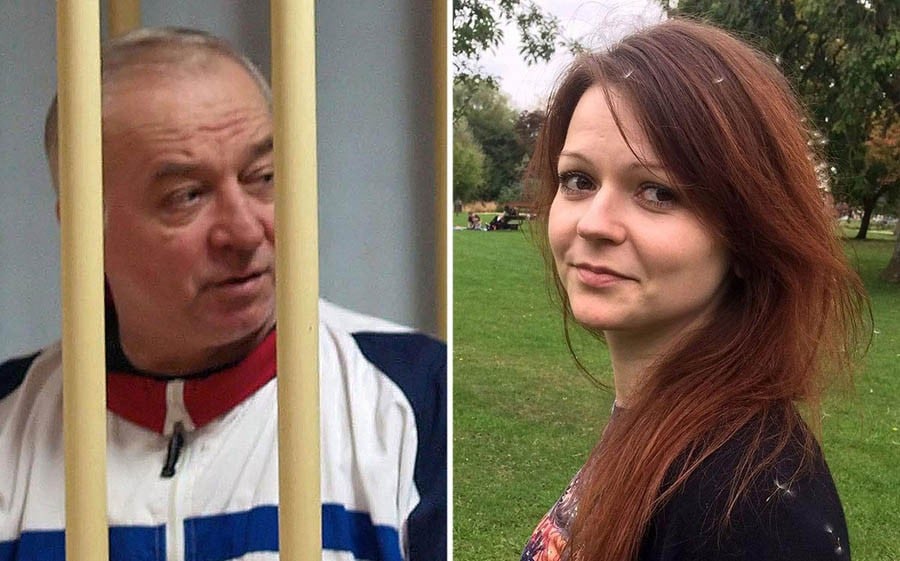
A Russian who spied for Britain is the target of a sinister attack

As if Britain didn’t have enough problems, now a bizarre episode involving a former colonel in the Russian army has underlined its vulnerability both to covert attacks and enemy malice.
What happened was that last Monday police were alerted about a man and a woman sitting on a bench at a shopping centre in Salisbury, who seemed to be in need of help. The woman appeared to be unconscious while the man was in a semi-comatose state making odd gestures with his hands. Passers-by guessed that that they were under the influence of some sort of drug. But when they were taken to hospital they were both declared to be in critical condition, and doctors were unable to understand what had caused the condition.
The man was identified as Sergei Skripal, a former Colonel in the Russian army, who had been convicted and jailed for having been a spy for Britain, and who had been brought over to the UK in an exchange of agents in 2010. This was the exchange that happened following the unmasking of a number of deep cover Russian sleeper cells -- mostly in the US which included the very photogenic Anna Chapman who found both fame and fortune after her deportation to Russia.
Skripal was one of four Russians exchanged for ten deep cover agents planted by Moscow in the US (anybody who has seen the TV programme The Americans will have some idea of the murky world of the sleeper cells). The woman in hospital is reported to be his daughter Yulia. Once Skripal was identified, people began to compare their case to the death of another Russian spy Alexander Litvinenko in 2006. Litvinenko had fallen ill shortly after meeting two KGB contacts in a central London hotel.
For days he lay in hospital fading away with doctors unable to identify what had caused his condition. It was eventually identified as a case of poisoning by radioactive polonium -- the tea he was given in that hotel room meeting was laced with radioactive polonium210. The inquiry report into Litvinenko’s death stated that the substance could only have come from a nuclear reactor --which seemed to be a ‘strong indicator’ of state involvement. Litvinenko had been a fierce critic of Russian strongman Vladimir Putin.
Litvinenko had arrived in Britain six years before his assasination. During that time he wrote two books. He accused the Russian secret service of links to a Moscow terror bombing, and Putin of having ordered the murder of journalist Anna Politskovskaya.
Skripal kept a low profile in Britain but he too was targeted after a period of six years here. There are still many unanswered questions about the case, although now investigators have said that Skripal and his daughter were targeted with some sort of nerve gas. The British Foreign Secretary (Boris Johnson) has promised a ‘robust response’ if Russia is found to have been involved in the attack although just how his bellicose statement helps matters along is rather unclear.
Unanswered questions remain also about the timing of the attack: why now? Some observers have linked it to the upcoming Presidential elections in Russia (to be held on March 18). But how would the assassination of a former spy help Russian strongman Putin? One view is that it was a sort of show of strength, a form of messaging telling Putin’s detractors and Russian dissidents that dissent equals treason and is deserving of death. Be that as it may, other observers point out that during the Cold War defectors were generally not targeted once their treachery was exposed but the Skripal case indicates that such convention has been abandoned.
This assassination attempt story may seem like something out of a Hollywood thriller, but the reality is just how very vulnerable the UK and its citizens and spies are and indeed how much the Russians know and monitor.
As if all the Brexit woes were not enough for Britain, now it is the terror spy episode to worry about too. It does seem a bit like it’s all back to the future…
Best wishes